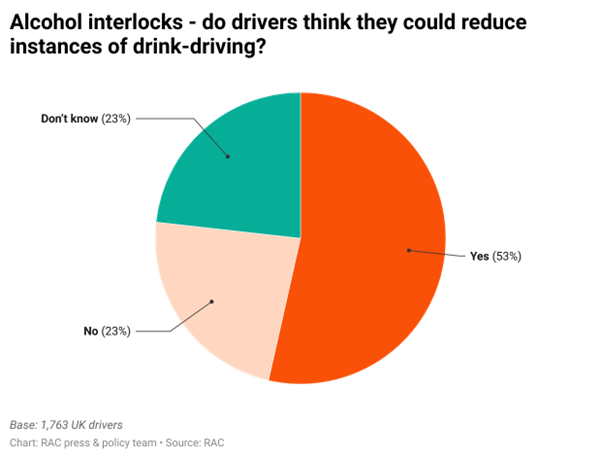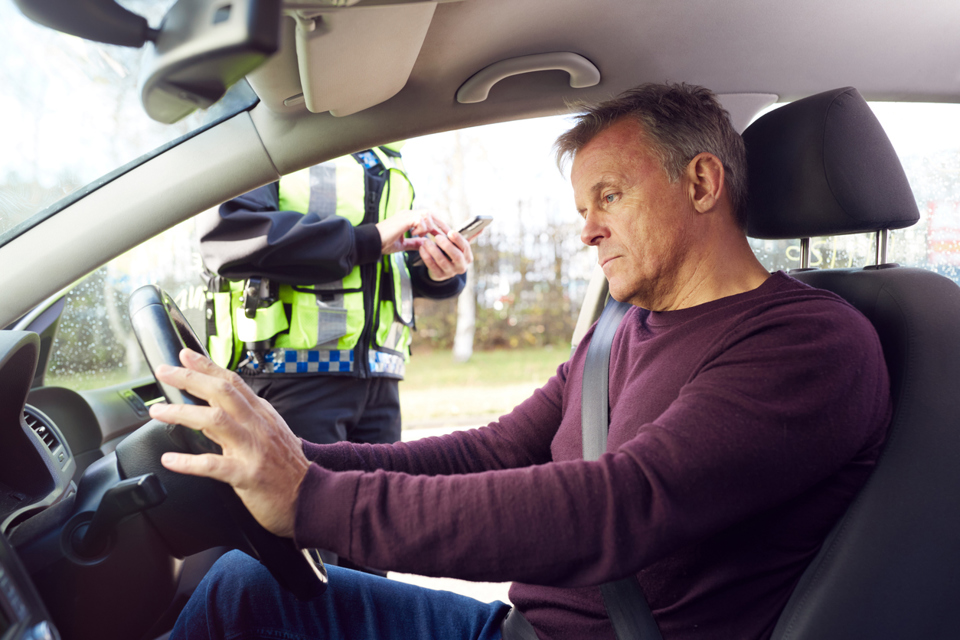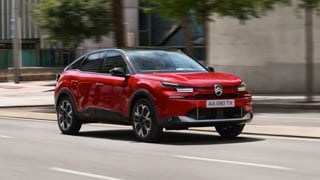Anyone convicted of drink-driving should be forced to have an ‘alcolock’ fitted to their vehicle to prevent them reoffending.
That’s according to more than half (53%) of motorists surveyed by the RAC, with data suggesting a significant number of drink-drive offences are committed by reoffenders.
More than 27,000 individuals were convicted of multiple drink-driving offences in the 11 years leading up to July 2024, according to a Freedom of Information (FOI) request.
Government data also shows there were a total of 47,284 ‘driving a motor vehicle under the influence of drink or drugs’ convictions in all courts in the year ending 2023.
Around one-in-four drivers (23%) said they did not think the introduction of the breathalyser devices – which prevent a vehicle being started if there is any alcohol in the offender’s breath – would reduce drink-driving, a similar proportion (23%) were unsure about the idea.
In 2022, 300 people were killed in drink-drive collisions, according to the most recently available statistics.
Three-quarters (76%) of drivers who participated in the RAC survey said that they would like to see more being done to reduce the number of people that drive while over the limit.

RAC head of policy, Simon Williams, says it is “very apparent” that many of the drink-drivers caught by the police are reoffenders, which implies something different needs to be done to change this “dangerous behaviour”.
“Drivers have told us they believe that alcohol-interlocks – either just for repeat drink-drivers or for everyone convicted of the offence – could be a good way of reducing drink-drive collisions and the resulting deaths and injuries which are currently far too high,” he added.
Alcolocks or alcohol-interlocks could be mandated for reoffenders only or could be used for anyone convicted of drink-driving.
In other countries the fitting is generally paid for by the offender, although in cases of financial hardship the state can step in to cover the cost.
More than half (56%) of drivers supportive of alcohol-interlocks were in favour of all offenders having the devices fitted to prevent them driving under the influence again.
Comparatively, just 39% thought they should only be used with drivers who had been caught on at least one previous occasion.
In other countries where alcohol-interlocks are used, including Finland, Belgium, New Zealand, Australia, Canada and many parts of the United States, drink-drivers are generally banned for a short time. They are then allowed to drive again as long as they have an alcohol-interlock fitted to their vehicle for a set period, most commonly a year.
Two-thirds (66%) of those surveyed by the RAC said they would be supportive of a similar approach in the UK, 15% were against the idea and a fifth (19%) were undecided.
In New Zealand, the alcohol-interlock is removed after 12 months as long as the offender had no instances of alcohol in their recorded breath tests during the last six months.
Those that test positive have to keep the device until they have six months of tests with zero alcohol. Offenders are then issued with a zero-alcohol driving licence for three years.
The conditions of this licence mean that if the holder is found to drive with any alcohol in their systems whatsoever, they can be charged with drink-driving and disqualified.
Concerns about offenders getting sober people to cheat alcohol-interlocks are countered by the fact the devices demand further random tests while driving.
“We are aware that their use may be seen as a soft option by some, but experience from other countries suggests the opposite,” said Williams.
“Simply banning habitual drink-drivers doesn’t seem to be the answer even though they face a prison sentence, as all too often they just get behind the wheel again anyway.”
Currently the only options for courts are disqualification from driving, ordering convicted drink-drivers to attend rehabilitation courses and custodial sentences for reoffenders.
Williams concluded: “Court orders that mandate alcohol-interlocks to prevent reoffending could be worth exploring in a trial.
“We hope the Government considers this in the forthcoming road safety strategy being produced by the Department for Transport.”
























Login to comment
Comments
No comments have been made yet.